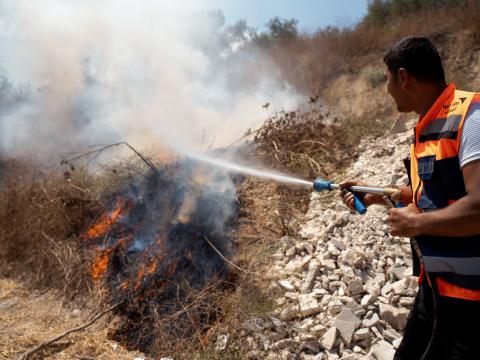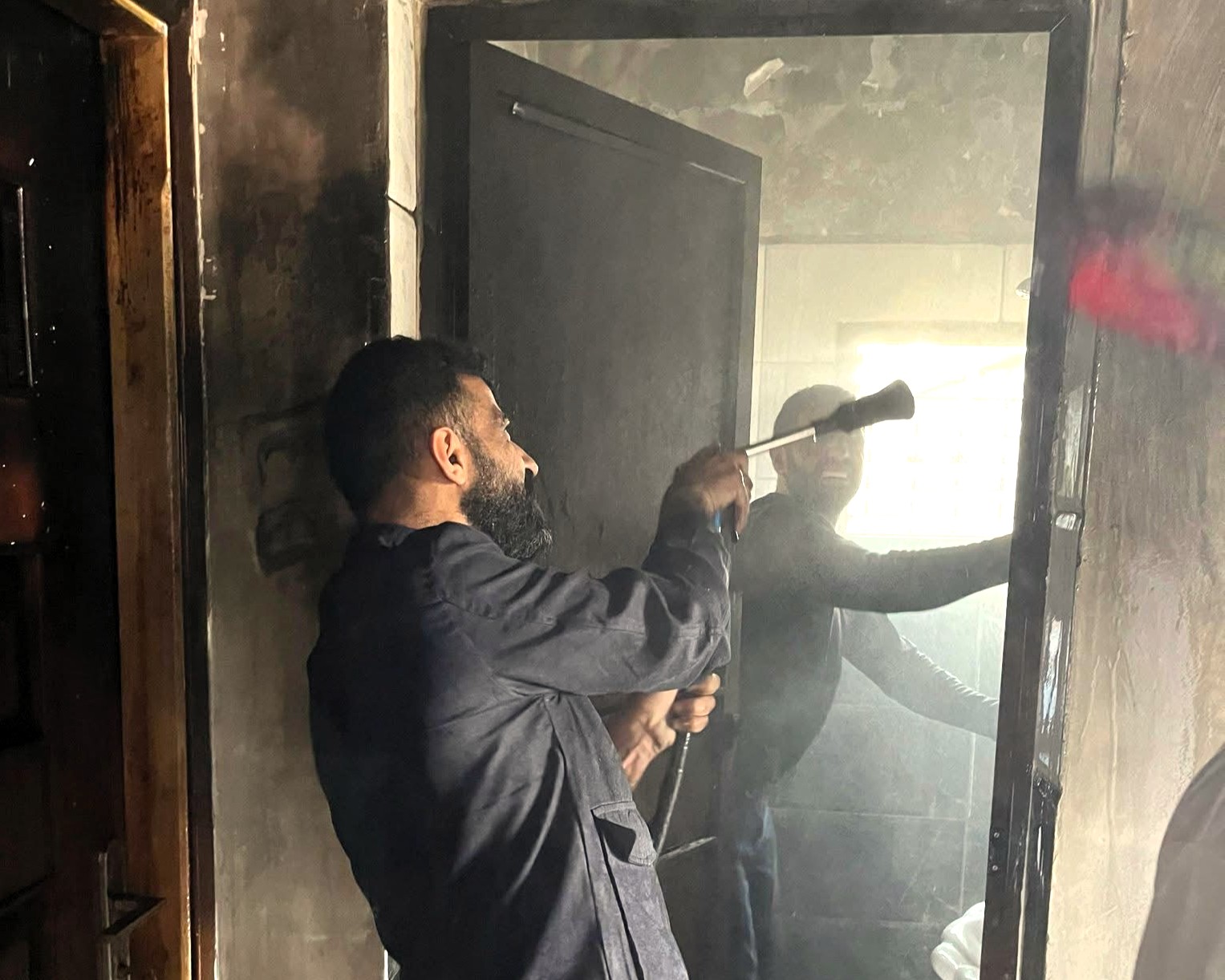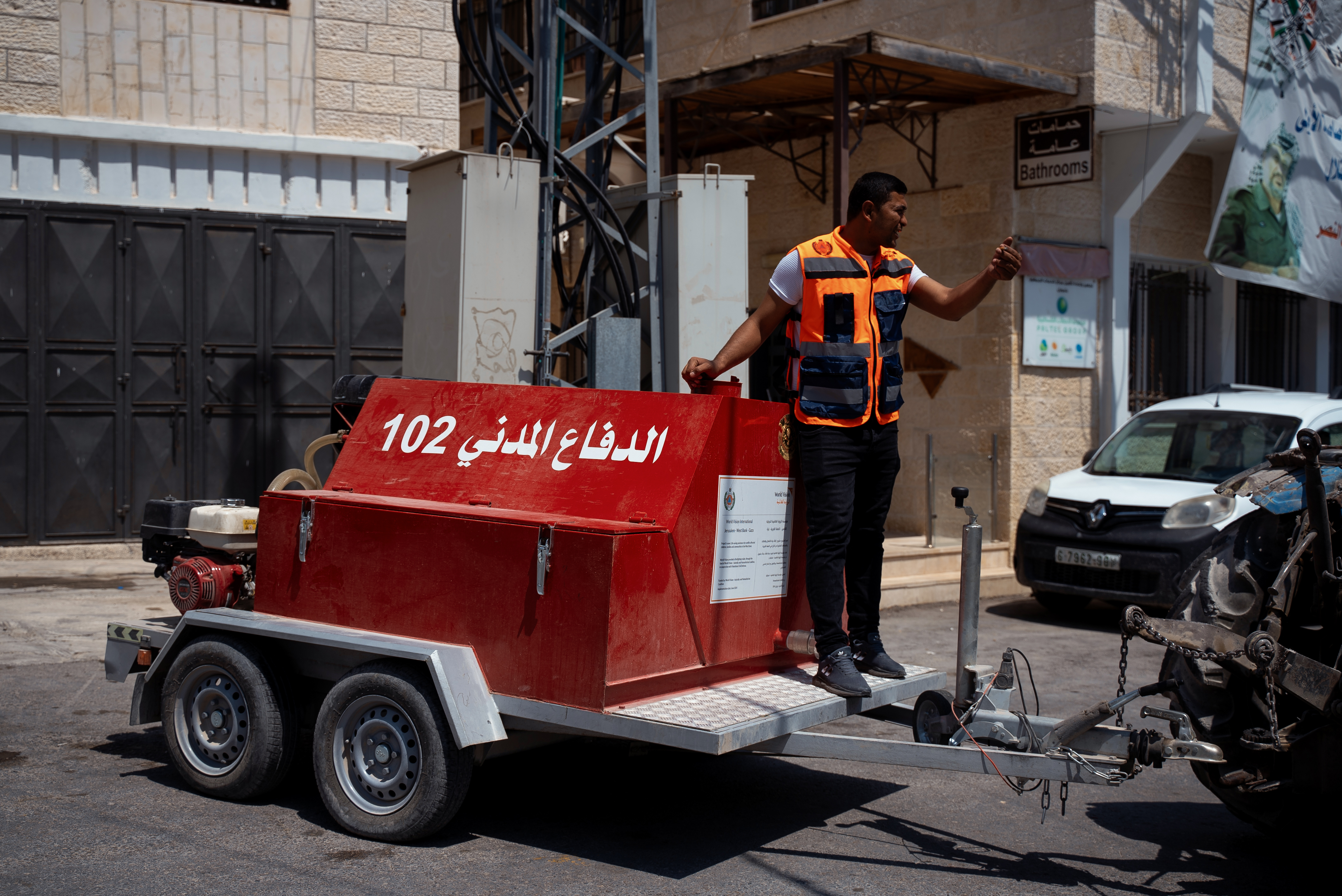Prepared to Protect: How Local Volunteers Saved Lives When Seconds Counted

On April 11, 2025, a fire broke out in a home in the remote village of Aqqaba, nestled in the green hills of the northern West Bank. Sparked by an electrical short circuit, the blaze quickly engulfed the house, trapping the family inside and threatening to spread to neighboring buildings. Just 18 months ago, the civil defense unit based in nearby Tubas would have arrived within minutes. But on this day, the residents of Aqqaba knew one thing for certain: no one was coming. They were on their own.
Since October 2023, severe movement restrictions have been imposed across the West Bank. Although the exact number fluctuates, the United Nations estimates that nearly 900 checkpoints, barriers, and roadblocks now fragment the territory. The status of these obstacles changes daily, making it nearly impossible to predict whether a route will be open or closed at any given time. Communities often face long delays at checkpoints or are forced to take alternative paths—many of them unpaved and hazardous.

These constraints have had a devastating effect on the ability of firefighters to respond to emergencies in a timely manner. A recent World Vision survey revealed that emergency services could reach less than 1 in 3 villages consistently. For the remaining communities, the stark reality is that they must handle emergencies on their own.
Fortunately, the residents of Aqqaba were prepared. Within minutes of the fire breaking out, trained local volunteers mobilised. They deployed a fire cartridge and quickly worked to contain and extinguish the flames, successfully preventing the fire from spreading. Their swift, coordinated response not only minimised property damage but likely saved the lives of the family members trapped inside.

These volunteers had spent months preparing for such a scenario. With funding from the Disasters Emergency Committee (DEC), World Vision equipped them with a fire cartridge, fire extinguishers, and first aid kits. They also received specialised training from professional firefighters on how to safely and effectively respond to fire emergencies. Many weekends were spent in practice drills to ensure readiness.
Through this project, 18 villages across the West Bank—along with 31 schools and 6 local Civil Defense units—have been provided with essential equipment and local volunteers have been trained to strengthen their emergency response capabilities. When every second matters, these volunteers are now the heroes their community can count on.